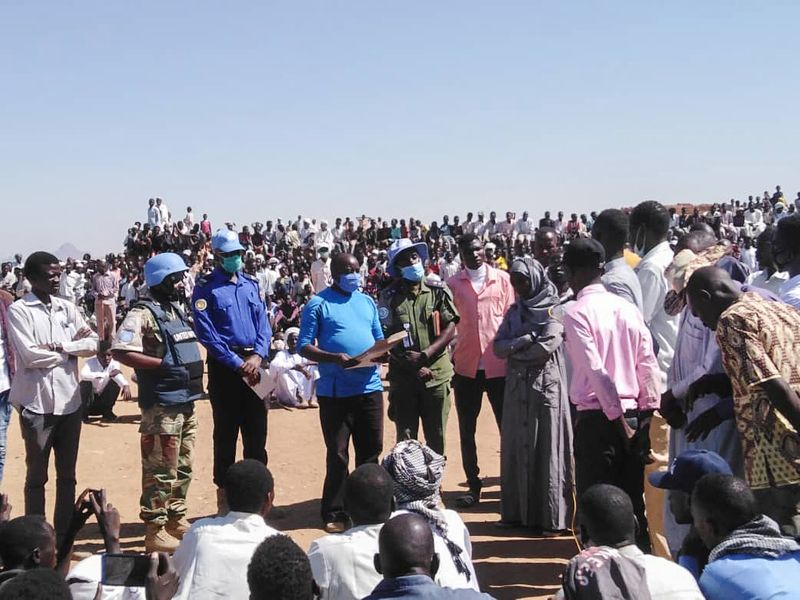KHARTOUM (Reuters) – Sudan’s prime minister has appointed veteran Darfur rebel group leader and Islamist Jibril Ibrahim as finance minister in a cabinet overhaul announced in a press conference on Monday.
The reshuffle comes as Hamdok struggles to push through reforms and secure foreign financing seen as crucial to easing a deep economic crisis and bolstering Sudan’s transition to democracy.
Hamdok, appointed following a military-civilian power-sharing deal after the overthrow of Omar al-Bashir, had led a cabinet of technocrats which has had an uneasy relationship with the military.
Caretaker ministers have been in charge at seven ministries including the finance ministry since July.
The new, expanded cabinet comes following a peace deal signed in October with some rebel groups. It was aimed at ending conflicts in Darfur and southern Sudan, awarded the groups posts in transitional institutions, and reset the clock on a 39-month transition to elections.
Analysts say the peace deal and long-delayed appointments to transitional bodies are important steps, though the replacement of qualified technocrats with political figures could throw up new challenges.
Ibrahim, leader of the Justice and Equality Movement (JEM) that fought government forces in Darfur from 2003, had previously been a member of the Islamist movement under Bashir.
A former economic advisor for JEM who became leader after his brother was killed in an airstrike, some Sudanese, as well as analysts, have questioned the expected appointment of a former Bashir ally and Islamist to a key ministry, particularly during an economic crisis.
Rebel groups have also been given the mining, livestock, social development, education, infrastructure and federal government ministries, following the agreement. Three rebel leaders were appointed last week to an expanded ruling transitional sovereign council.
The post of foreign minister went to Mariam Sadiq al-Mahdi, a leader of the popular Umma Party and daughter of former prime minister and Bashir opponent Sadiq al-Mahdi.
Khalid Omar Yousif, a leader of the Sudanese Congress Party and a prominent figure in the protests that brought down Bashir, was appointed minister of cabinet affairs.
Several officials, including the Justice and Irrigation and Water Resources ministers, were re-appointed to the new cabinet. A new education minister has not yet been appointed.
Sudan has witnessed protests in recent days over the state of the economy, with high inflation and commodity shortages.
Commenting on the cabinet’s plans for the new year, Hamdok said “we must focus on productive investments that help to solve the economic distress the country is going through,” going on to list expected investments in petroleum and electricity.
(Writing by Nafisa Eltahir, Editing by Aidan Lewis and Toby Chopra)

























